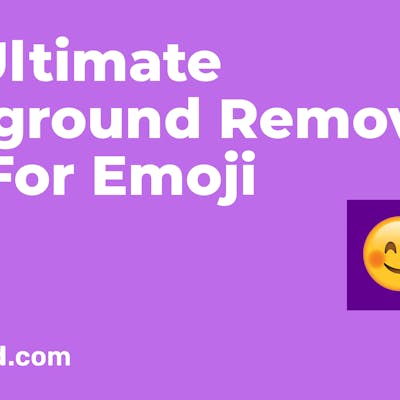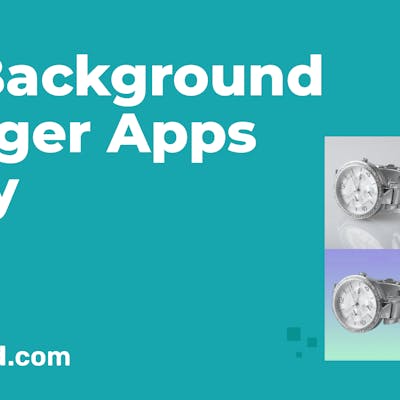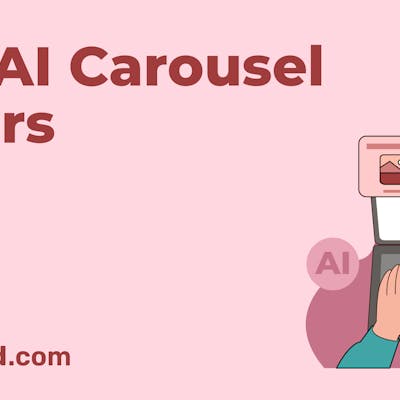Have you ever wondered how powerful a simple poster can be in the world of advertising and marketing? Consider this: Around 80% of people react positively toward printed ads.
Posters may seem old-school, but they still work at successfully grabbing audience attention. However, designing them has its challenges, like limited space and finding the right balance between visuals and text.
If you’re keen to make compelling posters without graphic design experience, you’re in the right place. In this guide, we’ll show you how to make a poster in 10 easy steps, whether it’s for events, products, or sharing messages.
Let’s dive in!
About Posters And Their Importance

A poster is a visual communication tool. It combines images, text, and design elements. Its purpose is to convey a message, promote an event, advertise a product or service, or share information.
Posters are known for their concise and visually appealing style. Here are some reasons why you should use posters for marketing:
- High Visibility: Posters reach a broad audience in high-traffic areas.
- Local Targeting: They are ideal for attracting local customers and promoting community events.
- Eye-catching Design: Engaging visuals in posters capture attention quickly.
- Longevity: Posters remain in view for an extended period.
- Cost-effective: Posters are affordable compared to some advertising methods.
- Visual Storytelling: Convey information and evoke emotions through imagery.
Types of Posters

There are various types of posters, each designed to serve specific purposes. Here are some common types of posters:
1. Event Posters
These promote upcoming events, such as concerts, plays, fairs, conferences, and sporting events. They highlight event details and create excitement.
2. Advertisement Posters
Brands use advertising posters to promote goods, services, or special deals. They often feature iconic images and are distributed through various mediums like magazines, newspapers, billboards, and posters.
3. Movie Posters
Movie posters are used to promote films and are highly sought-after collectibles. They often feature captivating visuals and key information about the movie.
4. Travel Posters
Used by tourism agencies, tour companies, and governments to promote travel to specific destinations. They often showcase picturesque landscapes and tourist attractions.
5. Infographic Posters
Similar to informative posters, infographic posters use graphical elements like illustrations, icons, and images combined with text to explain complex information clearly and visually.
6. Music Posters
Promote music concerts, festivals, and album releases. They often include band or artist images, event details, and ticket information.
Related: The 7 Best Graphic Design Apps For iPhone
How to Make a Poster in 10 Simple Steps

Gone are the days when people used to take days to make a poster. Now, with the advent of AI graphic design tools and ready-made poster design templates, you can easily craft posters in just a few minutes or hours. Follow these steps to learn how to make a poster in 10 simple steps:
Step 1: Determine Your Poster’s Purpose
Before diving into design, establish the main goal of your poster. Whether it’s advertising a product, promoting an event, sharing campaign details, or announcing a sale, knowing your purpose will guide your design decisions.
Once the purpose of the poster is clear, you can use different AI poster design templates to match the theme and design.
For example, if your purpose is to promote a charity run, your poster’s goal might be to encourage registrations and donations.


Step 2: Identify Your Target Audience
The next step in making a poster is identifying your target audience. It should be clear who your poster is intended for. This way, you can tailor your design and content to resonate with this specific group, ensuring your message is relevant and appealing to them.
For example, if your audience is young adults interested in fitness or fashion, your poster should feature energetic visuals and fashion and fitness-related content.


Step 3: Choose Your Distribution Platform
Decide where you plan to display or share your poster. Whether it’s for print or digital use, understanding the platform’s requirements will help you create an effective design.
For example, if your poster will be shared on Instagram, create a square design optimized for mobile viewing.
- For Print
If you intend to print your poster, visualize where it will be displayed. Adjust the size accordingly to stand out or fit seamlessly within its environment.

- For Social Media
If you’re sharing your poster on social media, size it for specific platforms like Facebook, Twitter, Instagram, or Pinterest. Ensure it looks good and is optimized for mobile viewing.

Here are the recommended dimensions for major social media platforms:
| Social Media Platform | Recommended Dimensions |
| 1200 x 628 pixels or 1200 x 1200 pixels for square | |
| 1024 x 512 pixels | |
| 1080 x 1080 pixels or 1080 x 1350 pixels for portrait | |
| Aim for a ratio of 2:3 to 1:3.5, allowing flexibility in length |
Step 4: Select a Professional Poster Design Template
You don’t need to hire professional designers to craft compelling poster backgrounds. With Simplified’s free AI poster design templates, you can effortlessly create engaging posters for various purposes.
Begin your design process by choosing a poster template that aligns with your poster’s purpose and style. Look for templates with layouts and design elements that suit your goals.


Step 5: Pick a Relevant or Branded Color Scheme
One of the first things that catches the eye of your poster is the color scheme. Choose one that complements your poster’s theme and resonates with your audience.
Consider color meanings – blue for wisdom and trust, green for energy and tranquility, and red for strength and joy. If you have brand guidelines, incorporate your brand colors to maintain consistency.
For example, a poster promoting a beach vacation might use a color scheme of blues and sandy browns to evoke a coastal atmosphere.


Step 6: Include a Clear Call-to-Action (CTA)
Every poster should have a clear and concise CTA. Make it easy for viewers to understand what action to take, whether it’s visiting a website, attending an event, or making a purchase.
For example, for a poster advertising a product sale, a CTA could be “Shop Now” with a prominent button or QR code generated via a custom QR code generator with a brand logo for linking to the online store.


Step 7: Use Fonts to Create Hierarchy
Organize your information with a clear hierarchy of fonts. Emphasize the most crucial details with larger or bolder fonts.
For example, headlines on a poster should use a bold, attention-grabbing font, while body text should use a clean, legible typeface.
You should present information in this sequence to ensure readability and coherence.
- Event name
- Date and time
- A brief event description or captivating tagline
- Event location
- A clear call to action, such as a website, social media link, or contact number
- Organization name, department, or company details


Step 8: Enhance with Icons
Icons are excellent visual aids for posters. Use them to illustrate concepts, create interest, or replace text when appropriate.
For example, in a healthcare poster about heart health, use a heart icon to represent cardiovascular topics such as exercise and nutrition for triathletes.
Here are key tips for using icons in your poster design:
- Keep a consistent style for your icons.
- Use icons sparingly, leaving enough whitespace for balance.
- Enhance icons with a simple border or background shape for emphasis.
- If replacing text with icons, ensure clarity and style consistency for a cohesive design.


Step 9: Incorporate High-Quality Images
Use high-resolution images and stock photos to enhance your poster’s visual appeal. Ensure the images are crisp and clear, especially if you plan to print the poster.
For example, in a travel poster, use high-quality images of lush landscapes.


Step 10: Download in the Optimal Format
Once your poster is ready, download it in the appropriate format based on your distribution platform. Choose high-resolution formats for print and optimized sizes for social media.
For example, if you’re sharing a poster on social media, download it in a format optimized for online viewing, such as JPEG or PNG, with appropriate dimensions.

Related: 15 Poster Design Ideas (and Templates) for Event Marketing
How to Make Different Types of Posters
Here are some of the most popular types of posters and the steps to create them:
How to Make a Poster for Events
- Begin with an eye-catching background.
- Use a bold font for the event title.
- Add embellishments to the title.
- Include date, time, and location.
- Incorporate a simple call to action.
- Describe the event’s significance.
- Integrate the logo and brand colors.

How to Make a Poster for Sales
- Start with a clean background design.
- Emphasize savings or discounts.
- Specify the store or sale location.
- List discounted products.
- Mention the start and end dates.
- Provide contact information or a website link.
- Incorporate branding or logos.
How to Make a Poster for Healthcare
- Select a health topic.
- Create a compelling title.
- Highlight data, stats, and recommendations.
- Incorporate images and icons.
- Invite people to a website or more resources.
- Follow a consistent style.

How to Make a Poster for Education
- Define the topic or subject.
- Collect relevant information and facts.
- Choose an educational template.
- Organize content logically.
- Incorporate visuals like images, diagrams, or charts.
- Add a clear title and headings.
- Include branding or the institution logo.
- Review and proofread.

How to Make a Poster for Travel
Select a captivating destination or theme.
Find high-quality images of the location.
Choose an appealing template.
Add a stunning title and tagline.
Highlight key attractions and details.
Include travel dates or offers.
Incorporate branding elements.
Ensure readability and aesthetics.

How to Create a Poster to Motivate People
- Determine the message or quote.
- Pick a template with a suitable style and mood.
- Add the inspirational text prominently.
- Select complementary visuals or graphics.
- Choose a motivational color scheme.
- Include your brand logo subtly.
- Ensure legibility and alignment.

How to Make a Poster for Party
- Choose a theme or occasion.
- Find festive and vibrant images.
- Select a party-themed template.
- Craft a catchy event title.
- Include date, time, and location details.
- Highlight entertainment or special features.
- Mention ticket information or RSVP.
- Integrate party branding elements.

Make Captivating Posters With Simplified

Simplifieds AI-powered tool transforms poster creation, ensuring accessibility and efficiency. It features AI-driven poster design templates, image enhancer, and a text generator, simplifying the entire design process.
You can personalize templates with text, icons, and more at no cost with our graphic design tool. Our user-friendly platform makes design accessible to all, regardless of expertise. What’s best is that you can make posters for free with Simplified.
Related: Exploring Color Trends in Graphic Design & Social Media
How to Make a Poster With Simplified
With Simplified, you can create posters in minutes with the power of AI technology. Here are the steps you need to follow:
- Visit Simplified.
- Select a poster template.
- Customize your template with images, text, and icons.
- Enhance visuals using Simplified’s AI image enhancer.
- Generate compelling text with an AI writer.
- Preview and edit your poster design.
- Save and download your poster in the preferred format.

With thousands of poster design templates, premium stock photos, and AI design tools at your disposal, Simplified makes poster creation easy, cost-effective, and convenient for all.




![10 Best AI Image Restoration Tools to Try in 2025 [Free & Paid] 10 Best AI Image Restoration Tools to Try in 2025 [Free & Paid]](https://siteimages.simplified.com/blog/Best-AI-Image-Restoration-Tools-01.png?auto=compress&fit=crop&fm=png&h=400&w=400)
![How to Use Photoshop AI Generative Fill Feature [2025] How to Use Photoshop AI Generative Fill Feature [2025]](https://siteimages.simplified.com/blog/How-to-Use-Photoshop-AI-Generative-Fill-01-1.png?auto=compress&fit=crop&fm=png&h=400&w=400)
![20 Podcast Thumbnail Ideas to Boost Your Show’s Visual Appeal + Best Practices [2025] 20 Podcast Thumbnail Ideas to Boost Your Show’s Visual Appeal + Best Practices [2025]](https://siteimages.simplified.com/blog/Podcast-Thumbnail-Ideas-to-Boost-Your-Show-02-1.png?auto=compress&fit=crop&fm=png&h=400&w=400)




